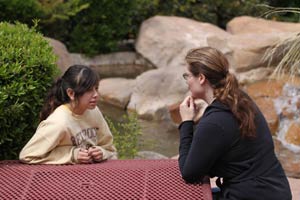Juvenile Delinquency | C.A.R.E
By Craig Rogers
Juvenile delinquency refers to antisocial or criminal acts performed by troubled teens. It is an important social issue because juveniles are capable of committing serious crimes, but most legal systems prescribe specific procedures and punishments for dealing with such crimes.
Juvenile Delinquency may refer to either violent or non-violent crime committed by persons who are (usually) under the adult age. However, there is much debate about whether or not a child should be held criminally responsible for his or her own actions. There are many different outside influences that are believed to affect the way a troubled teenager act both negatively and positively, some of which are as follows:
- Physical abuse
- Psychological abuse
- Abandonment
- Social institutions
- Peer pressure
A few of his most praised theories are social control theory which is any illegal behavior that occurs within the moment, not planned. Also, self control theory which is any behavior that uses force or fraud in pursuit of self interest. Both are similar theories that attempt to explain juvenile delinquency and suggest that all people are naturally bad. Youth in particular who use drugs and commit crime does it because they lack self control.
Poor parenting and families that are unable or willing to monitor their child's behaviors lack self control.
A number of studies have found that prevention costs much less than the effects of delinquency itself. Many states have caught hold of this vision and have allocated funds for programs that serve an at-risk youth.
The idea that a learning disability (LD) increases the risk of juvenile delinquency came from early anecdotal reports by professionals indicating that many delinquent youth had school problems.
These factors include:
- the ability to compartmentalize and reframe the disability into something positive
- perseverance in the face of adversity
- goal orientation and goal setting
- proactive behavior
- compensatory strategies to work around difficulties
- the presence and use of social support systems
- emotional coping strategies
